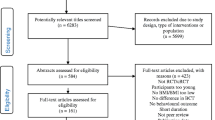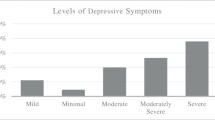Abstract
Background
African-American (AA) women have higher rates of obesity and obesity-related diseases but are less likely than other women to undergo bariatric surgery or have success with conventional weight loss methods.
Objective
To explore obese AA women’s perceptions regarding barriers to weight loss and bariatric surgery.
Design
Focus groups to stimulate interactive dialogue about beliefs and attitudes concerning weight management.
Participants and Approach
We partnered with a community organization to recruit women who were AA, were ≥18 years old, and had a body mass index (BMI) of ≥30 kg/m2. We audiotaped the 90-minute focus groups and used content analysis for generating and coding recurring themes.
Results
In our sample of 41 participants, the mean age was 48.8 years and mean BMI was 36.3. Most participants were unmarried, had some postsecondary education, and reported good or fair health. About 85% knew someone who had undergone bariatric surgery. Qualitative analysis of 6 focus group sessions revealed that the most common barriers to weight loss were lack of time and access to resources; issues regarding self-control and extrinsic control; and identification with a larger body size. Common barriers to bariatric surgery were fears and concerns about treatment effects and perceptions that surgery was too extreme or was a method of last resort.
Conclusions
Only through the elimination of barriers can AA women receive the care needed to eliminate excess weight and prevent obesity-related morbidity and mortality.
Similar content being viewed by others
References
Mokdad AH, Marks JS, Stroup DF, Gerberding JL. Actual causes of death in the United States, 2000. JAMA. 2004;291(10):1238–45.
Ogden CL, Carroll MD, Curtin LR, McDowell MA, Tabak CJ, Flegal KM. Prevalence of overweight and obesity in the United States, 1999–2004. JAMA. 2006;295(13):1549–55.
Flegal KM, Carroll MD, Ogden CL, Johnson CL. Prevalence and trends in obesity among US adults, 1999–2000. JAMA. 2002;288(14):1723–27.
Wechsler JG, Leopold K. Medical management of obesity. Langenbecks Arch Surg. Dec 2003;388(6):369–74.
McTigue KM, Harris R, Hemphill B, et al. Screening and interventions for obesity in adults: summary of the evidence for the U.S. Preventive Services Task Force. Ann Intern Med. 2003;139(11):933–49.
Residori L, Garcia-Lorda P, Flancbaum L, Pi-Sunyer FX, Laferrere B. Prevalence of co-morbidities in obese patients before bariatric surgery: effect of race. Obes Surg. 2003;13(3):333–40.
Choban PS, Jackson B, Poplawski S, Bistolarides P. Bariatric surgery for morbid obesity: why, who, when, how, where, and then what? Cleve Clin J Med. 2002;69(11):897–903.
Presutti RJ, Gorman RS, Swain JM. Primary care perspective on bariatric surgery. Mayo Clin Proc. 2004;79(9):1158–66; quiz 1166.
McGuire MT, Wing RR, Klem ML, Hill JO. Behavioral strategies of individuals who have maintained long-term weight losses. Obes Res. 1999;7(4):334–41.
Buchwald H, Avidor Y, Braunwald E, et al. Bariatric surgery: a systematic review and meta-analysis. JAMA. 2004;292(14):1724–37.
Sjostrom CD, Lissner L, Wedel H, Sjostrom L. Reduction in incidence of diabetes, hypertension and lipid disturbances after intentional weight loss induced by bariatric surgery: the SOS Intervention Study. Obes Res. 1999;7(5):477–84.
Avenell A, Brown TJ, McGee MA, et al. What interventions should we add to weight reducing diets in adults with obesity? A systematic review of randomized controlled trials of adding drug therapy, exercise, behaviour therapy or combinations of these interventions. J Hum Nutr Diet. 2004;17(4):293–316.
Anderson JW, Konz EC, Frederich RC, Wood CL. Long-term weight-loss maintenance: a meta-analysis of US studies. Am J Clin Nutr. 2001;74(5):579–84.
Wing RR, Hill JO. Successful weight loss maintenance. Annu Rev Nutr. 2001;21:323–341.
Tyler DO, Allan JD, Alcozer FR. Weight loss methods used by African American and Euro-American women-QUALIT. Res Nurs Health. 1997;20(5):413–23.
Cachelin FM, Rebeck RM, Chung GH, Pelayo E. Does ethnicity influence body-size preference? A comparison of body image and body size. Obesity Res. 2002;10(3):158–66.
Kumanyika S, Wilson JF, Guilford-Davenport M. Weight-related attitudes and behaviors of black women. J Am Diet Assoc. 1993;93(4):416–22.
Serdula MK, Mokdad AH, Williamson DF, Galuska DA, Mendlein JM, Heath GW. Prevalence of attempting weight loss and strategies for controlling weight. JAMA. 1999;282(14):1353–58.
Wing RR, Anglin K. Effectiveness of a behavioral weight control program for blacks and whites with NIDDM. Diabetes Care. 1996;19(5):409–13.
Buffington CK, Marema RT. Ethnic differences in obesity and surgical weight loss between African-American and Caucasian females. Obes Surg. 2006;16(2):159–65.
Daly A, Konz EC, Soler N, Anderson JW, Yergler C, Carpenter P. Successful long-term maintenance of substantial weight loss: one program’s experience. J Am Diet Assoc. 2000;100(12):1456.
Wadden TA, Berkowitz RI, Womble LG, et al. Randomized trial of lifestyle modification and pharmacotherapy for obesity. N Engl J Med. 2005;353(20):2111–20.
Sjostrom L, Rissanen A, Andersen T, et al. Randomised placebo-controlled trial of orlistat for weight loss and prevention of weight regain in obese patients. European Multicentre Orlistat Study Group. Lancet. 1998;352(9123):167–72.
Encinosa WE, Bernard DM, Steiner CA, Chen CC. Use and costs of bariatric surgery and prescription weight-loss medications. Health Aff (Millwood, Va.). 2005;24(4):1039–46.
Steinbrook R. Surgery for severe obesity. N Engl J Med. 2004;350(11):1075–79.
Buchwald H, Williams SE. Bariatric surgery worldwide 2003. Obes Surg. 2004;14(9):1157–64.
Freedman DS, Khan LK, Serdula MK, Galuska DA, Dietz WH. Trends and correlates of class 3 obesity in the United States from 1990 through 2000. JAMA. 2002;288(14):1758–61.
Schauer PR, Ikramuddin S, Gourash W, Ramanathan R, Luketich J. Outcomes after laparoscopic Roux-en-Y gastric bypass for morbid obesity. Ann Surg. 2000;232(4):515–29.
Christou NV, Sampalis JS, Liberman M, et al. Surgery decreases long-term mortality, morbidity, and health care use in morbidly obese patients. Ann Surg. 2004;240(3):416–23; Discussion 423–14.
Pope GD, Birkmeyer JD, Finlayson SR. National trends in utilization and in-hospital outcomes of bariatric surgery. J Gastrointest Surg. 2002;6(6):855–60; Discussion 861.
[computer program]. Version 3rd Edition. Berlin, Germany; 2005.
Pope C, Ziebland S, Mays N. Qualitative research in health care. Analysing qualitative data. BMJ. 2000;320(7227):114–6.
Krueger RA, Casey MA. Focus groups: a practical guide for applied research. 3rd ed. Thousand Oaks: Sage Publications; 2000.
Hayward LM, Nixon C, Jasper MP, et al. The process of restructuring and the treatment of obesity in women-QUALIT. Health Care Women Int. 2000;21(7):615–30.
Dietz W. Focus group data pertinent to the prevention of obesity in African Americans. Am J Med Sci. 2001;322(5):275–8.
Belza B, Walwick J, Shiu-Thornton S, Schwartz S, Taylor M, LoGerfo J. Older adult perspectives on physical activity and exercise: voices from multiple cultures. Prev Chronic Dis. 2004;1(4):A09.
Walcott-McQuigg JA, Sullivan J, Dan A, Logan B. Psychosocial factors influencing weight control behavior of African American women. West J Nursing Res. 1995;17(5):502–20.
Walcott-McQuigg JA, Chen SP, Davis K, Stevenson E, Choi A, Wangsrikhun S. Weight loss and weight loss maintenance in African-American women. J Natl Med Assoc. 2002;94(8):686–94.
Walcott-McQuigg JA. Stress, women and weight control behavior. J Cult Divers. 1995;2(2):64–71.
Striegel-Moore R, Wilfley D, Caldwell M, Needham M, Brownell K. Weight-related attitudes and behaviors of women who diet to lose weight: a comparison of black dieters and white dieters. Obes Res. 1996;4(2):109–16.
Blixen CE, Singh A, Thacker H. Values and beliefs about obesity and weight reduction among African American and Caucasian women. J Transcult Nurs. 2006;17(3):290–7.
Calle EE, Thun MJ, Petrelli JM, Rodriguez C, Heath CW, Jr. Body-mass index and mortality in a prospective cohort of U.S. adults. N Engl J Med. 1999;341(15):1097–105.
Foster GD, Wadden TA, Makris AP, et al. Primary care physicians’ attitudes about obesity and its treatment. Obes Res. 2003;11(10): 1168–77.
Arfken CL, Houston CA. Obesity in inner-city African Americans. Ethn Health. 1996;1(4):317–26.
Libeton M, Dixon JB, Laurie C, O’Brien PE. Patient motivation for bariatric surgery: characteristics and impact on outcomes. Obes Surg. 2004;14(3):392–8.
Wee CC, Jones DB, Davis RB, Bourland AC, Hamel MB. Understanding patients’ value of weight loss and expectations for bariatric surgery. Obes Surg. 2006;16(4):496–500.
von Soest T, Kvalem IL, Skolleborg KC, Roald HE. Psychosocial factors predicting the motivation to undergo cosmetic surgery. Plast Reconstr Surg. 2006;117(1):51–62; Discussion 63–54.
Acknowledgments
This research was supported by the EXPORT Health Project at the Center for Minority Health (CMH), Graduate School of Public Health, University of Pittsburgh, NIH/NCMHD Grant No. P60 MD-000-207-03 and the Division of General Internal Medicine, School of Medicine, University of Pittsburgh. Sincerest thanks to our collaborating partners for their efforts with recruitment and data management and analysis—CMH and Black Women’s Health and Outreach for Longer Life and Empowerment (BWHOLE) and University Center for Survey and Urban Research, University of Pittsburgh—R. Schulz, S. Shulman. Finally, we express our gratitude to Laurel Person, Natalie Solomon, and Andrea Arrington who assisted in data collection and analysis.
Conflict of Interest
None disclosed.
Author information
Authors and Affiliations
Corresponding author
Appendix
Appendix
Focus Group Interview Guide
Opening question:
-
(1)
What are your thoughts or opinions about weight and how it relates to health?
Transitional questions:
-
(2)
What comes to mind when you think about ways to lose weight?
-
(3)
What would be some positive changes in your life if you lost weight?
-
(4)
What goes on in your life that makes it difficult for you to lose weight?
Key questions:
-
(5)
How much weight do you think you need to lose to be satisfied?
-
(6)
How hard do you think you need to work at losing weight?
-
(7)
Have you heard about weight loss surgery? If so, what comes to mind when you think of it?
-
(8)
What would influence you to consider weight loss surgery for yourself?
Concluding question:
-
(9)
What is the one burning comment or piece of information that you want to add that I did not ask about?
Rights and permissions
About this article
Cite this article
Lynch, C.S., Chang, J.C., Ford, A.F. et al. Obese African-American Women’s Perspectives on Weight Loss and Bariatric Surgery. J GEN INTERN MED 22, 908–914 (2007). https://doi.org/10.1007/s11606-007-0218-0
Received:
Revised:
Accepted:
Published:
Issue Date:
DOI: https://doi.org/10.1007/s11606-007-0218-0




